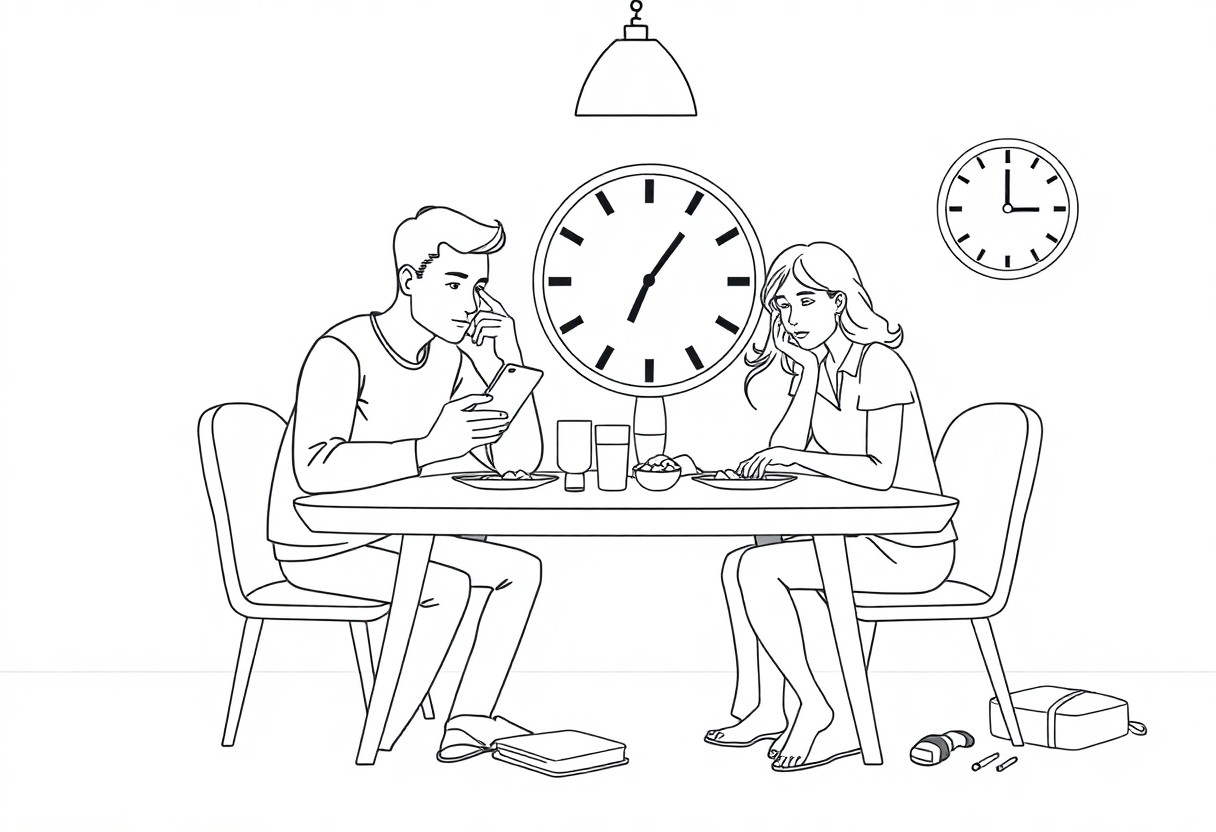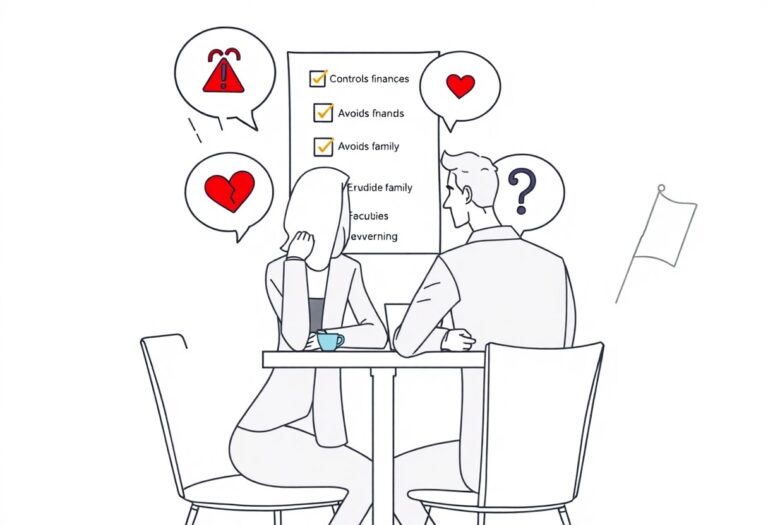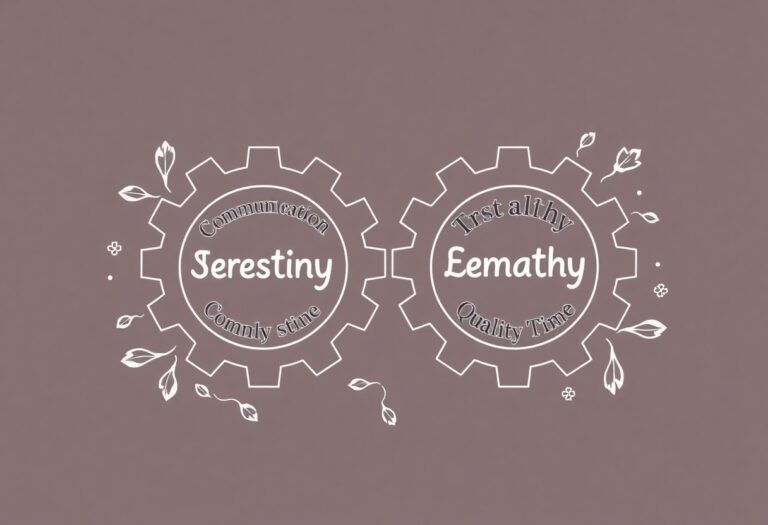Is Your Lifestyle Hurting Your Relationship?
Just as your daily habits shape your overall wellbeing, they can significantly impact your relationship. If you find yourself prioritising work over quality time, neglecting communication, or adopting unhealthy routines, you may be unwittingly creating distance between you and your partner. Recognising how lifestyle choices affect your emotional connection is necessary for building a stronger bond. Addressing these issues can lead to positive changes that enhance both your personal fulfilment and your relationship’s vitality.
Key Takeaways:
- Recognise how daily habits can affect emotional connection and intimacy.
- Communication patterns play a significant role in relationship satisfaction.
- Individual stressors, such as work or health, can spill over into relationship dynamics.
- Quality time together is crucial for building and maintaining strong bonds.
- Awareness of personal behaviours can lead to positive changes in the relationship.

Understanding Relationship Dynamics
Every relationship functions within a complex web of dynamics shaped by individual behaviours and choices. Recognising these dynamics can illuminate how your lifestyle impacts your partner and the relationship as a whole. Clashing values, communication styles, and emotional needs often influence your interactions, creating a cycle that can either strengthen or weaken your bond. Acknowledging and addressing these patterns leads to healthier, more fulfilling connections.
The Impact of Lifestyle Choices
Your daily lifestyle choices can have significant effects on your relationship. Whether it’s the way you manage stress, your spending habits, or even how much time you dedicate to your partner, these choices shape the emotional environment. For example, prioritising work over quality time can foster feelings of neglect, straining the relationship. Evaluating and adjusting these habits can promote harmony and understanding between you and your partner.
Recognizing Toxic Patterns
Toxic patterns can suffocate a relationship, often manifesting through consistent negative behaviours. It’s important to identify signs such as constant criticism, avoidance of conflict, or emotional unavailability. These elements not only erode trust but also create an atmosphere where growth becomes stunted. Awareness of these patterns paves the way for potential change, allowing you to begin rebuilding a healthier dynamic.
Knowing how to recognise toxic patterns involves observing interactions over time. For instance, if arguments frequently escalate into personal attacks, this pattern reflects deeper issues that need addressing. Keeping a log of recurrent grievances can reveal underlying themes harming your relationship. Facilitating open discussions about these recognitions with your partner can initiate healing, transforming harmful cycles into opportunities for growth and understanding. Prioritising this introspection enables both of you to break free from damaging behaviours, fostering a healthier, more supportive environment.
Communication Breakdowns
In relationships, communication breakdowns often lead to misunderstandings and resentment. You might find that misaligned expectations and poor listening skills contribute to feelings of isolation. Even small lapses in effective dialogue can snowball, making it harder to connect over time. Addressing these issues promptly is important for maintaining a healthy partnership.
The Role of Communication in Relationships
Effective communication forms the foundation of any healthy relationship. Sharing thoughts and feelings openly helps you understand each other’s perspectives, fostering emotional intimacy. Regular, honest conversations enable you to navigate challenges while reinforcing your bond, ensuring both partners feel valued and heard.
Common Misunderstandings
Common misunderstandings often arise from assumptions rather than clear dialogue. You may interpret silence as discontent or failure to respond as indifference, leading to unnecessary conflict. Miscommunication can stem from differing communication styles, where one partner may prioritise directness while the other prefers subtlety.
In relationships, misunderstandings can take various forms. For instance, you might assume your partner understands your needs without expressing them, leading to frustration when those needs go unmet. Furthermore, non-verbal cues can be misread; a sigh might be perceived as irritation, while the intention could simply be fatigue. Survey data shows that *70% of couples experience recurring arguments rooted in miscommunication*, highlighting the importance of clarifying intentions and feelings. Open conversations about these topics can significantly reduce tensions and enhance your connection.
Balancing Personal and Shared Goals
Fostering a satisfying relationship often hinges on the balance between pursuing your individual aspirations and nurturing collective endeavours. To achieve this, set aside time to discuss both personal ambitions and joint objectives. By recognising the significance of each partner’s goals, you cultivate a shared vision that strengthens your bond, ensuring that both personal fulfilment and relationship growth harmoniously coexist.
Aligning Values and Priorities
Your relationship thrives on shared values and compatible priorities. Understanding what truly matters to you both sets the foundation for effective collaboration. Explore each other’s motivations, whether financial stability, career progression, or personal development, as aligning these factors will enhance your ability to support one another while enhancing your relationship’s overall satisfaction.
Navigating Compromise
Compromise acts as the glue that holds relationships together when aspirations diverge. Identifying the non-negotiables in each partner’s life allows for a more balanced approach to shared decision-making, enabling you to foster respect and understanding. Embrace the idea that achieving balance may mean adjusting timelines or altering expectations to honour both personal and shared goals.
To navigate compromise effectively, take a structured approach by prioritising open communication. Outline what aspects of your goals are flexible and where you feel strongly. Using techniques like active listening can foster empathy, allowing each partner to feel heard. Establishing boundaries and agreeing on periodic check-ins ensures that both partners remain committed to adapting as circumstances evolve. This proactive strategy not only prevents resentment but also reinforces the relationship’s imperative unity, making both individual and shared pursuits sustainable over time.
Stress and Its Effects
Stress often creeps into daily life, silently affecting the quality of your relationship. High stress levels can lead to misunderstandings, reduced patience, and an increase in conflict. It’s not merely the stress itself that causes problems; how you respond to that stress plays a vital role. Persistent stress alters communication patterns, as anxiety and irritability can skew your perceptions, ultimately eroding your connection with your partner.
External Stressors
External stressors, such as work pressure, financial worries, or family obligations, can seep into your relationship, creating tension and distance. These factors often lead to emotional fatigue, making it challenging to engage fully with your partner. The impact of a demanding job or constant financial insecurity can render you less available for open communication, exacerbating feelings of isolation and frustration within the relationship.
Managing Stress Together
Addressing stress as a team can significantly enhance your relationship. Open dialogues about stressors help you both understand each other’s perspectives and reduce feelings of isolation. Engaging in shared activities like exercise, mindfulness, or simply scheduling time to unwind together are effective strategies to bond and counteract stress. Building a toolkit of healthy coping mechanisms together strengthens your partnership and fosters resilience against external pressures.
Jointly managing stress involves proactive communication and collaboration on finding solutions to shared challenges. Establishing regular check-ins about your feelings or discussing stressors can open pathways for support. Incorporating routines that allow you to share experiences, such as cooking together or taking evening walks, cultivates a sense of unity. Research shows couples who actively engage in supporting each other during stressful times report higher satisfaction and emotional intimacy, proving that solidarity against stress can fortify your relationship.
Quality Time vs. Quantity of Time
Quality time significantly outweighs quantity in nurturing a relationship. Engaging in meaningful interactions fosters deeper connections, whereas merely being present without engagement can lead to disconnection. Prioritising moments that matter, whether through heartfelt conversations or shared experiences, enhances emotional intimacy and understanding, enabling both partners to feel valued and heard.
Importance of Intentionality
Intentionality in your interactions can transform the nature of your connection. Actively choosing to devote time to one another, free from distractions, demonstrates commitment and respect. This focused attention allows partners to explore one another’s thoughts and feelings, building trust and affection over time.
Activities to Strengthen Bonds
Engaging in shared activities can significantly fortify your relationship. Whether it’s cooking together, going for walks, or pursuing a mutual hobby, these moments not only create lasting memories but also enhance teamwork and communication skills within the partnership.
Activities such as cooking a new recipe together or launching on weekend hikes provide platforms for collaboration and shared adventure. Research indicates that couples engaging in activities that challenge them together often report higher relationship satisfaction. Regularly trying something new, like dance classes or art workshops, can promote excitement and spark within your relationship, reinforcing bonds through shared triumphs and laughter.
Seeking Professional Help
Professional support can provide vital insights when your relationship faces challenges. Therapists offer a neutral space where you and your partner can express feelings without judgement. This guidance can enhance communication, identify unhealthy patterns, and develop effective strategies. Engaging in therapy strengthens your bond, aiding in the resolution of ongoing disputes or emotional distances that may have formed over time.
When to Consider Counseling
Identifying the right moment for counselling can be pivotal. If persistent conflicts arise, communication breaks down, or trust issues emerge, consider seeking help. Signs such as feeling increasingly disconnected or experiencing repeated cycles of argument often indicate professional intervention may be beneficial.
Benefits of Therapy
Therapy offers numerous advantages for couples, including improved communication, conflict resolution skills, and a deeper understanding of each other’s perspectives. It encourages vulnerability and fosters a supportive environment for emotional exploration, which often leads to a more fulfilling partnership.
Exploring the benefits of therapy reveals significant transformations in relationships. Couples often report a marked improvement in their interactions after engaging in therapy, noting a 60% increase in communication effectiveness on average. As trust builds, partners feel more comfortable sharing their vulnerabilities, leading to a healthier and more resilient connection. Additionally, therapy teaches practical tools for managing stress and conflict, resulting in enhanced emotional support and stability, often reducing the likelihood of future issues.
Final Words
The way you live your life can significantly impact your relationship. You may be neglecting your partner’s needs or prioritising personal habits that create distance. Assessing your lifestyle choices is necessary to ensure that they foster connection rather than conflict. By making conscious adjustments and prioritising your partner, you can strengthen your bond and create a healthier, more fulfilling relationship.
FAQ
Q: What are the signs that my lifestyle may be negatively affecting my relationship?
A: Signs include frequent arguments, lack of communication, emotional distance, neglecting quality time together, and prioritising personal activities over shared experiences.
Q: How can I identify unhealthy habits in my lifestyle that impact my relationship?
A: Reflect on your daily routines, assess the amount of time you dedicate to your partner versus individual pursuits, and consider if your behaviours lead to conflict or disconnection.
Q: What lifestyle changes can improve my relationship?
A: Improvements can include setting aside regular quality time, enhancing communication skills, establishing boundaries with work or social commitments, and prioritising shared interests and activities.
Q: How does stress from my lifestyle affect my partner?
A: Stress can lead to irritability, reduced patience, and emotional withdrawal, making it difficult for partners to connect and support each other effectively, which can strain the relationship.
Q: Can physical health impact my relationship dynamics?
A: Yes, poor physical health can lead to fatigue, decreased intimacy, and lower mood, all of which can create a disconnect between partners and hinder relationship satisfaction.






